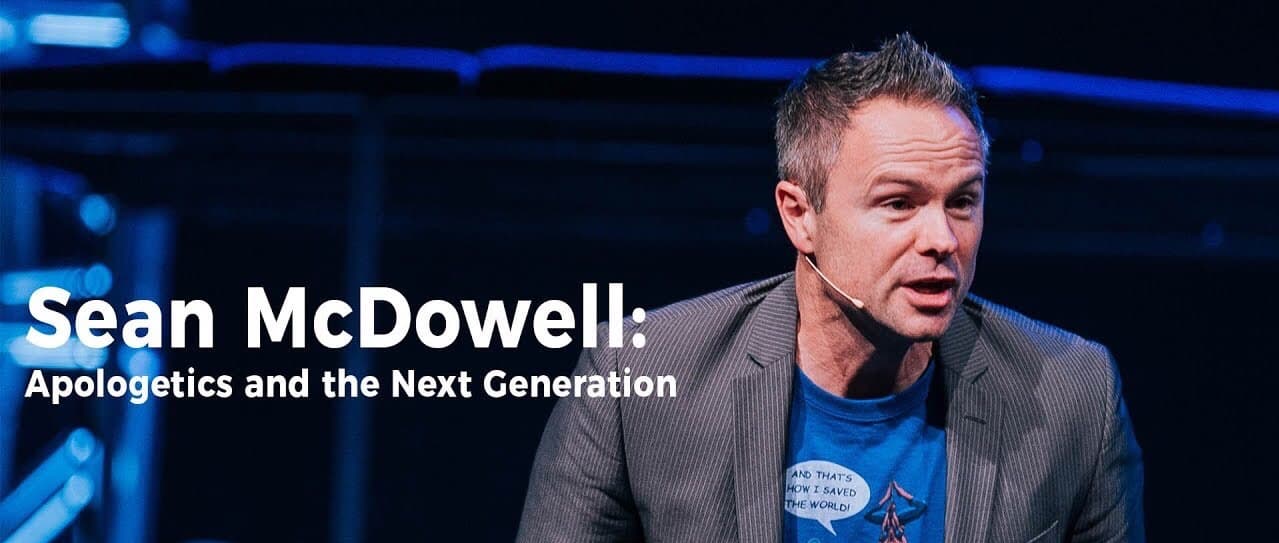Welcome to a new episode of Three Chords and the Truth: The Apologetics Podcast! Avengers: Endgame has now passed James Cameron’s Avatar and claimed second place on the list of highest-grossing films of all time in North America. In the previous episode of Three Chords and the Truth, Garrick Bailey and Timothy Paul Jones focused on the metanarrative and the ethical foundations of the Marvel Cinematic Universe. In this episode, apologetics professor and superhero super-fan extraordinaire Sean McDowell joins Garrick and Timothy to talk about love, sacrifice, superheroes, and resurrection. In the process, Sean McDowell reveals why he didn’t love Avengers: Endgame and why Garrick and Timothy might both be wrong about what would happen if Batman went to war against Iron Man. In the second half of the program, Garrick and Timothy go looking for transcendent truth in the Grammy Award-winning classic “Hotel California.” Along the way, they talk about Sehnsucht, plagiarism, and that one time when Timothy was looking for the founder of the Church of Satan but couldn’t find him.
Subscribe to Three Chords and the Truth: The Apologetics Podcast: Apple / Android / RSS.
In this Episode with Sean McDowell
Sean McDowell, Ph.D., is associate professor in the Christian apologetics program at Biola University and the resident scholar for Summit California. He earned his doctorate in apologetics from The Southern Baptist Theological Seminary. Dr. McDowell is the author, co-author, or editor of many books including So The Next Generation Will Know (David C. Cook, 2019); Sharing the Good News with Mormons (Harvest House, 2018); and, Evidence that Demands a Verdict (Harper Collins, 2017). Follow Dr. McDowell on Twitter at @Sean_McDowell

Questions to Discuss
1. Why do the themes of sacrifice and resurrection recur in so many superhero films?
2. What has been the most significant moment from the perspective of the themes of sacrifice and resurrection in the Marvel Cinematic Universe?
3. What was the most significant moment from the perspective of the themes of sacrifice and resurrection in the film Avengers: Endgame?
4. How will the rise of secularity shape the next phase of the Marvel Cinematic Universe?
Links to Click
Superheroes Can’t Save You: book by Todd Miles
So The Next Generation Will Know: book by Sean McDowell and J. Warner Wallace
The Weight of Glory: book by C. S. Lewis
Confessions: book by Augustine of Hippo
The Magus: novel by John Fowles
“We Used to Know”: song by Jethro Tull
“Hotel California”: song by the Eagles
“Desperado”: song by the Eagles
“Life’s Been Good”: song by Joe Walsh
“Running on Empty”: song by Jackson Browne
“Tumbleweed”: song by Joan Baez
“Comfortably Numb”: song by Pink Floyd
“Spider-Man”: song covered by the Ramones
If you are interested in earning a master’s degree online or on campus that will equip you with the most comprehensive apologetics training available anywhere, go to http://www.sbts.edu/bgs/degree-programs/mdiv/apologetics/
How to Make Three Chords and the Truth More Amazing than It Already Is
Support the show and spread the word! Here are a few ways to do that:
1. Subscribe to Three Chords and the Truth: The Apologetics Podcast: Apple / Android / RSS.
2. Leave a rating and review on iTunes to encourage other people to listen to the show.
3. If you purchase any of the books mentioned in Three Chords and the Truth, consider using the Amazon links provided in the show notes. The show will receive a small percentage of each sale.
4. Visit our Patreon site where you can support the podcast, suggest future songs or topics, and order Three Chords and the Truth merchandise.
5. Make contact with us on Twitter: @DrTimothyPJones @GarrickBailey @ApologeticsPod
The Closing Credits
Three Chords and the Truth: The Apologetics Podcast thanks B&H Academic for their sponsorship.
Music for the podcast has been licensed through Artlist.io and performed by the band Vegan Friendly—even though neither Garrick nor Timothy has ever been vegan friendly.
Brief excerpts of music played in each program are included solely for the purposes of comment and critique as allowed under the fair-use provision of U.S. copyright law. “The fair use of a copyrighted work … for purposes such as criticism, comment, news reporting, teaching, … scholarship, or research, is not an infringement of copyright” (U.S. Code § 107, Limitations on exclusive rights: Fair use).


